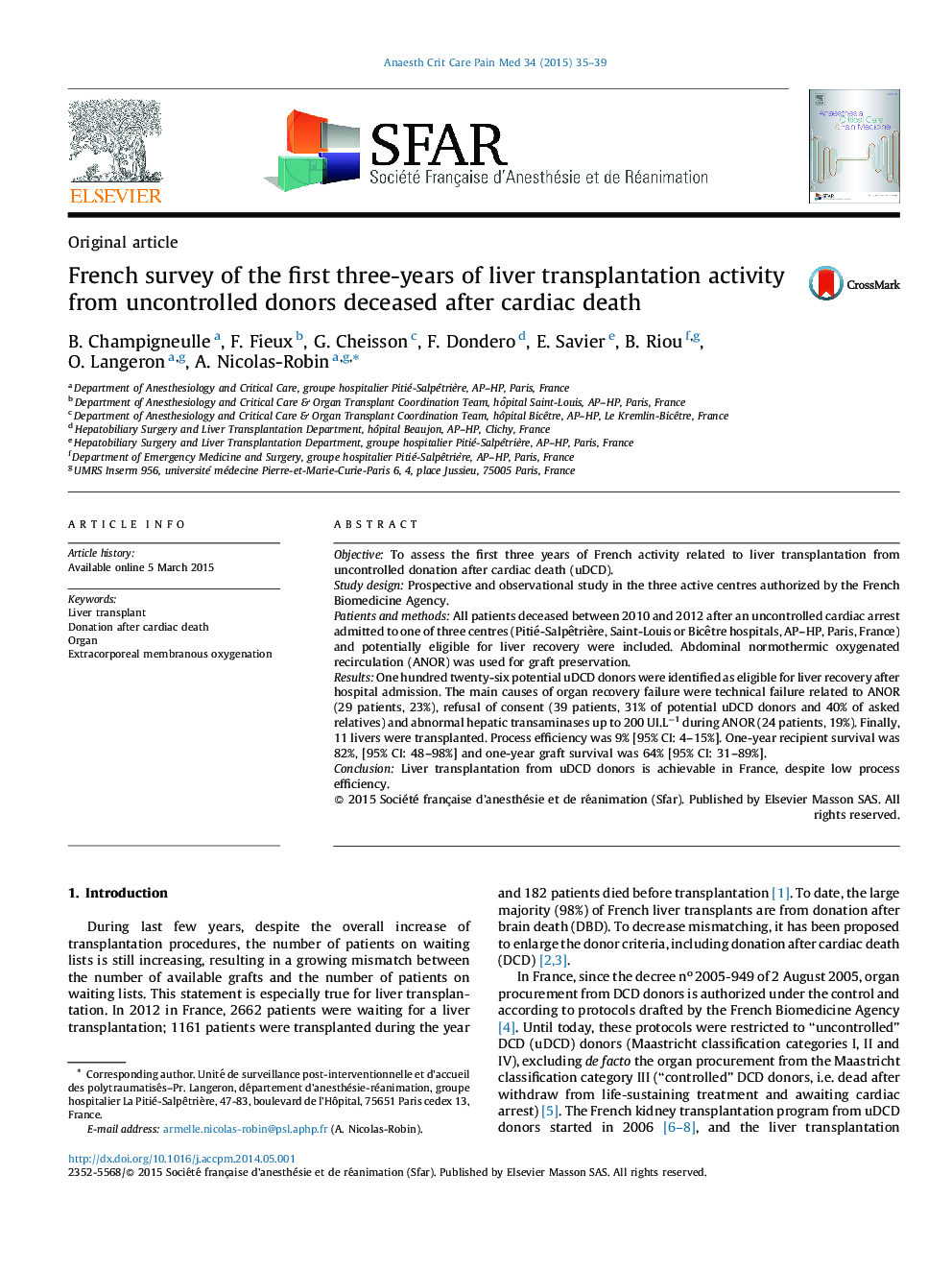| Article ID | Journal | Published Year | Pages | File Type |
|---|---|---|---|---|
| 2741961 | Anaesthesia Critical Care & Pain Medicine | 2015 | 5 Pages |
ObjectiveTo assess the first three years of French activity related to liver transplantation from uncontrolled donation after cardiac death (uDCD).Study designProspective and observational study in the three active centres authorized by the French Biomedicine Agency.Patients and methodsAll patients deceased between 2010 and 2012 after an uncontrolled cardiac arrest admitted to one of three centres (Pitié-Salpêtrière, Saint-Louis or Bicêtre hospitals, AP–HP, Paris, France) and potentially eligible for liver recovery were included. Abdominal normothermic oxygenated recirculation (ANOR) was used for graft preservation.ResultsOne hundred twenty-six potential uDCD donors were identified as eligible for liver recovery after hospital admission. The main causes of organ recovery failure were technical failure related to ANOR (29 patients, 23%), refusal of consent (39 patients, 31% of potential uDCD donors and 40% of asked relatives) and abnormal hepatic transaminases up to 200 UI.L−1 during ANOR (24 patients, 19%). Finally, 11 livers were transplanted. Process efficiency was 9% [95% CI: 4–15%]. One-year recipient survival was 82%, [95% CI: 48–98%] and one-year graft survival was 64% [95% CI: 31–89%].ConclusionLiver transplantation from uDCD donors is achievable in France, despite low process efficiency.
